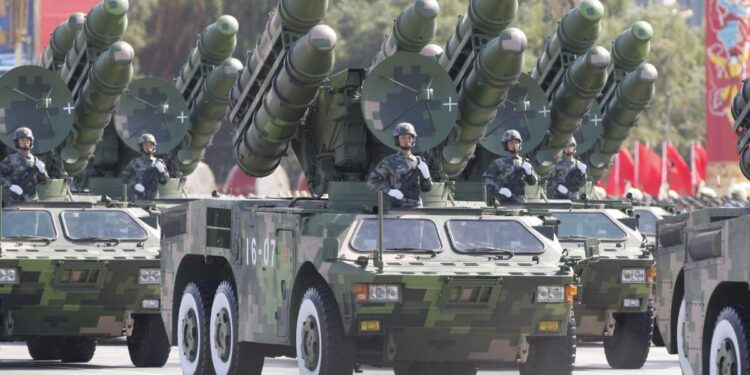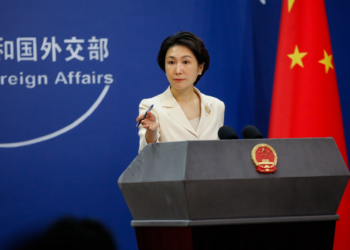BEIJING; China is set to stage one of its most significant military parades on Tuesday (September 3) in Beijing’s iconic Tiananmen Square, marking the 80th anniversary of Japan’s defeat in World War II.
The event will highlight Beijing’s growing military prowess and geopolitical ambitions, with a strong show of solidarity from leaders of allied nations.
Among the confirmed attendees is Pakistan’s Prime Minister Shehbaz Sharif, who is already in China on a six-day official visit to attend the 25th Shanghai Cooperation Organization (SCO) Summit.
His participation in the parade underscores the deepening strategic and economic ties between Islamabad and Beijing, particularly in the context of the China-Pakistan Economic Corridor (CPEC) and growing defense cooperation. Pakistani officials describe the Prime Minister’s presence as symbolic of Pakistan’s support for China’s vision of a multipolar world order.
In contrast, Indian Prime Minister Narendra Modi, who had attended the SCO Summit in Tianjin, left for New Delhi immediately after the conference, choosing not to participate in the parade. Analysts note that Modi’s departure reflects New Delhi’s cautious approach to balancing its relations with China amid ongoing border tensions and its deepening partnership with the United States.
The parade is expected to feature China’s most advanced weaponry, including hypersonic missiles, stealth aircraft, drones, and electronic warfare systems, signaling Beijing’s military modernization drive.
President Xi Jinping will preside over the event, projecting China’s narrative of being a decisive force in World War II and its contemporary role as a global power challenging Western dominance.
High-profile leaders attending include Russian President Vladimir Putin and North Korean leader Kim Jong Un, whose presence alongside Xi Jinping is seen as a strong message of defiance against Western criticism.
In total, leaders and representatives from more than 25 countries, primarily from Asia, Africa, and the Global South, will be present. Notably, only a handful of European leaders such as those from Serbia and Slovakia are participating, reflecting a sharp divide between Western and non-Western blocs.
For Pakistan, Prime Minister Shehbaz’s attendance provides an opportunity to reinforce Islamabad’s diplomatic positioning at a time when global alignments are shifting. It also highlights the contrast with India’s absence, offering Beijing a chance to spotlight Pakistan as a closer partner in its regional outreach.
The military parade, thus, is not only a demonstration of China’s strength but also a symbolic stage for emerging global alliances, with Pakistan playing a visible role in the proceedings.


















